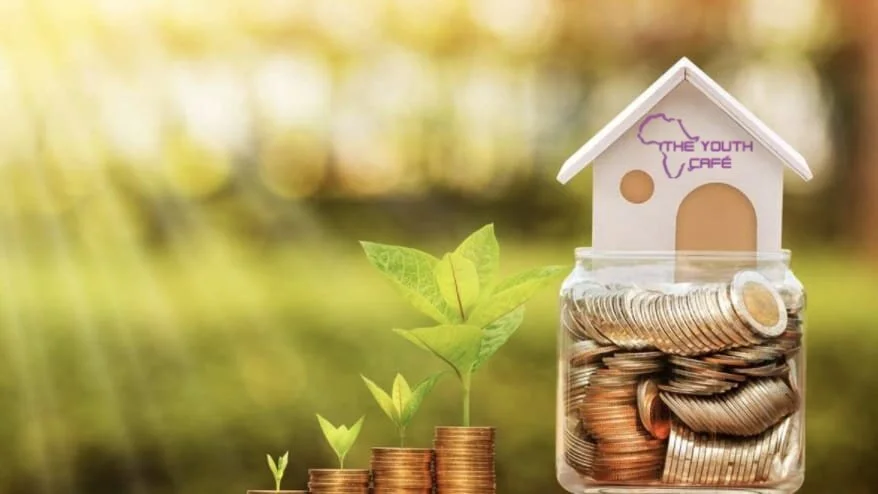Through multi-stakeholder engagements and in-depth country case studies, a draft Investment Guidelines for Youth in Agri-Food Systems in Africa has been produced by FAO in partnership with the AUC. The goal of this handbook is to serve as a resource for governmental and private sector partners, including financial institutions, civil society actors, youth-led organizations, and enterprises across the region, who want to encourage more investment in job creation and agricultural growth in rural areas of Africa. On this note, FAO and the AUC are co-organizing a virtual technical validation workshop aimed at providing a platform for participants to share views and provide final recommendations towards the finalization of the Investment Guidelines for Youth in Agri-food Systems in Africa.
African Youth As Drivers Of Decent Job Creation In Sustainable Food Systems
Although youths who are situated in farming communities have some, if not all resources at hand for the production of food, more still needs to be done in the development of youth farming. A high population of global youth are found in Africa and Asia and through increased urbanization, the act of food growing in these areas leaves food security and nutrition in jeopardy. According to reports from the World Bank, the share in food manufacturing and services is on the increase. The inclusion of women and youth into food systems can raise productivity and improve social peace, which as a result makes the migration to urban areas or even developed counties, a choice instead of a necessity.
The Youth Cafe - Strategic Plan 2021-2023 Launch Report
The Youth Café is excited to announce the official launch of the strategic plan for the years 2021 to 2023! The theme of this plan is “Investing in the youth for accelerated inclusive growth and sustainable development”. The event took place virtually on Friday the 28th of May 2021. We were so humbled by the amazing turnout, with our partners and stakeholders attending from all over the world.
The Youth Café Has Been Nominated To The United Nations International Organizing Committee (IOC) Of Global MIL Week 2021
With our own project on media literacy and civic reasoning ongoing, this opportunity means better articulation, support, and involvement of key stakeholders in the process. We also plan to have a media literacy week as well in Kenya, which the experience will then inform of this international planning committee. With the electioneering year approaching, we trust that learning more about digital literacy will impact our attitudes and thought process as we participate civically.
COVID-19: Vaccines For Developing Countries
There are a lot of myths and misconceptions about covid 19 vaccines. If youths are actively involved in the covid 19 vaccine distribution and administration process, they will provide and act as influencers providing relevant information that will debunk these myths and misconceptions thereby promoting youth compliance and acceptance of the vaccine
The Global Gender Equality and Social Inclusion (GESI) Analysis
Youth Excel aims to advance gender equality by using research, learning, and data to change systems and transform norms, shifting power differentials so that diverse youth—including youth of all genders in different age categories—influence development agendas and development decision making. In late 2020, we conducted a Global GESI Analysis through desk research to (1) compile data and identify broad trends in line with Youth Excel’s work; (2) provide recommendations for Youth Excel activities.
Economic Recovery: Toward A Green, Resilient, And Inclusive Future
The world faces major challenges including Covid-19, climate change, rising poverty, inequality and violence in many countries. Inequality is most apparent in the direct effects of COVID that hits informal workers and the vulnerable the most, vaccinations, wealth concentration, unequal impact of the fiscal stimulus, asset purchases and the imbalance in debtor/ creditor relationships particularly for people in the poorest countries. Many developing countries entered the pandemic with unsustainable debt levels but WBG worked to achieve a debt service suspension initiative and increased transparency in debt contracts.
Key Green Transitions: How Systems Are Changing For People And Planet.
There is a need to have global cooperation; working together to create a future that is green, resilient and inclusive for everyone. Looking at records, 2020 tied with the warmest year ever, broke the record for the most wildfires and the most hurricanes in the Atlantic and linked to the desert locust outbreak that hit Africa, Middle East and parts of South Asia with severe implications for food security and livelihood.
Rethinking Debt: Financing The Future Amid Crisis.
What is our perspective as The Youth Cafe? It is important for us to work on innovative solutions to the current debt challenge so that these solutions respond to diverse needs of borrowers and lenders. K.Y Amoako rightly puts it, “Do not just focus on debt. If Africa is to achieve, rekindle loss to covid in terms of meeting our SDGs goals in the decade ahead, we must transform our economies at a faster pace than we have been so far. It's about transformation. And to transform, african countries like countries everywhere, must borrow. But to ensure that this borrowing is manageable, it must be affordable to ensure we can repay our debts.”
How Might We Meaningfully Engage Youth in the Intergovernmental Energy Space
It is clear that in order to ensure a rapid and equitable energy transition, the youth must be a key group involved in planning, decision making, and implementation. This summary lays out the main points of the white paper on meaningful youth engagement in the events and processes in the intergovernmental energy space. The recommendations are built upon the principles and barriers for meaningful youth engagement developed through consultative processes by The Youth Cafe. This document was developed by the SDG7 Youth Constituency (SDG7 YC), which is the formal and dedicated youth engagement mechanism in UN sustainable development processes focused on energy. It is associated with The Youth Cafe. It also promotes youth engagement in other energy-related initiatives in the multilateral system.








